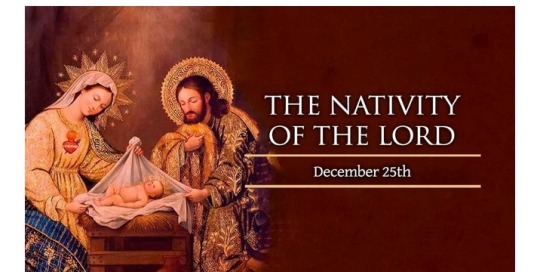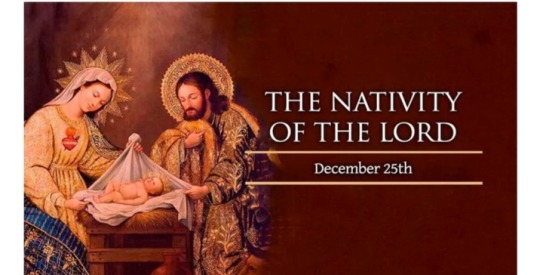#God in Crist and Christ in God
Explore tagged Tumblr posts
Text










#God in Crist and Christ in God#strangegirlwithaheart#peacebewithyou💕#in the name of the father and the son and the holy spirit Jesus name Amen.#godblessuinheart🙏🌻🌹💋💕👼😇
2 notes
·
View notes
Text
Idioms in Catalan with a religious origin
There's quite a lot of idioms that we say in everyday life, outside of the context of religion, but that come from religious stories or events.
Most of them come from Christianity, and many of them are shared with other Romance languages or other languages from historically Christian countries. To keep this list accessible to everyone regardless of cultural background, I will include the literal translation to English and also an explanation all of them.
Let's see how many of these you can understand before seeing the explanation. Let us know in the tags!
1. Fer Pasqua abans de Rams = "to do Easter before Palm Sunday", meaning to get pregnant, have a baby, or to have sex before getting married. Nowadays it's used in a more general sense to mean to do something before it's time (like English "put the cart before the horse"). Palm Sunday is a holiday celebrated the week before Easter.
2. Per a més inri = "for more INRI", used to add a bad thing on top of something else, making a situation even worse or more humiliating. It's a reference to the sign that said "INRI" (stands for the initials of "Jesus of Nazareth King of the Jews" in Latin) that Roman soldiers hanged on Christ's crucifix to make fun of him.
3. A la babalà = "in the babalà way", meaning to do something without having thought much about it. But what does "babalà" mean? This word doesn't exist in the Catalan language outside of this expression. It comes from the Arabic Alà bâb Allâh which means "in God's hands".
4. On Crist va perdre l'espardenya = "where Christ lost his sandal", or on Crist va perdre el barret = "where Christ lost his hat", meaning somewhere very far away and usually in the middle of nothing. I don't know of any story that has Christ lose his sandal or hat.
5. Perdut de la mà de Déu = "lost by God's hand", meaning a place in the middle of nowhere.
6. Ser un calvari ="to be a calvary", meaning that something is a cause of suffering. You can also hear quin calvari! = "what a calvary!". This is a reference to Mount Calvary, where Christ was crucified.
7. Endavant les atxes = "ahead with the candles!", meaning "keep going!", used to encourage to keep going in a negative situation with difficulties or a situation that you would have preferred to avoid. An atxa is a kind of big candle that the first people in a religious procession carry. This was the shout that would start a procession.
(Note: in recent years, Spanish media has used this idiom as supposed proof that Catalan independentists who said it are calling for violence, using a fake translation that assumed that "atxa" must mean the same as Spanish "hacha", meaning "axe" 🪓, because the pronunciation is almost identical. This is false, when people were saying "endavant les atxes" they did not intend any meaning related to "bring the axes". This was used to justify violence against Catalan activists, but has no ground in reality. "Axe"🪓 in Catalan would be "destral".)
8. Net com una patena = "as clean as a paten", meaning very clean. A paten is a kind of small dish used in Catholic mass, where the blessed sacramental bread in placed on.
9. Acabar com el rosari de l'aurora = "to end up like the dawn rosary", meaning to end very, very badly, usually in violence. The dawn rosary used to be a procession that was done in the early morning of certain holidays while praying the rosary. The idiom (which also exists in Spanish) comes from the year 1868. Around those years, there were many anticlerical riots, while the Catholic church kept doing the dawn rosary on the streets and often assigning it political meaning. In Barcelona and other cities, anticlerical protestors tried to stop the dawn rosary from happening, and it ended in violence and blood.
10. Plorar com una Magdalena = "to cry like a Magdalene", meaning to cry a lot and very desperately. This is a reference to Mary Magdalene, a character from the Bible's New Testament who cried when she met Christ.
11. Déu-n'hi-do! = "God gives!". This expression is difficult to translate because I don't think English has an equivalent (the closest I can think of are "wow!" or even "holy shit!"), but Catalan people use it a lot. It's an exclamation used to show surprise, awe or to mean a big quantity.
12. Ser més vell que Matusalem = "to be older than Methuselah", meaning that someone is very very old. Methuselah is a character from the Bible's Old Testament who is said to have lived for 969 years. This comparison is used for comedic value.
13. Rentar-se'n les mans = "to wash one's hands", meaning to say you're not responsible for what happens. This is a quote from the Bible's New Testament: when Christ is being judged by Pontius Pilate, the crowd is asking him to sentence him to crucifixion. He asks Christ to defend himself, but he doesn't. Pilate doesn't want to sentence him to death, but he sees he has no other option. Then, he sees his hands are stained with Christ's blood, and washes his hands as he decides that this situation will not be his responsibility.
14. Arribar a misses dites = "to arrive to mass [already] said", meaning to arrive late when something has already happened.
15. Ser com les palmes d’Elx, que vingueren el matí de Pasqua = "to be like the Elx palms, that arrived on Easter morning", this is used in the Valencian Country to mean to be late. Elx is a city with the biggest palm groove in Europe ever since the Middle Ages, and many of these palm tree leafs are used for making the palms used for Palm Sunday, the celebration that happens a week before Easter.
16. Va a missa = "goes to mass", meaning whatever is said is exactly what will happen, without complaining or second thoughts.
17. Endiumenjar-se = "to Sunday yourself" or "to Sunday up", meaning to dress up in your best clothes (same as "to wear your Sunday best" in English). Traditionally, people used to wear their best clothes for Sunday mass.
18. Alt com un sant Pau = "as tall as a saint Paul", someone who is very tall. Saint Paul was not tall, in his texts he describes himself as a "little man". The origin of this sentence is in Catalonia centuries ago. People used to celebrate the holiday of Saint Paul's Conversion (January 25th). In the Sant Pau del Camp church area in Barcelona, the tradition for this day had a man yield a huge sword. For this reason, the man had to be tall and strong.
19. Alegre/content com unes pasqües = "as cheerful/happy as Easters", meaning to be very happy and cheerful.
20. Discutir sobre el sexe dels àngels or parlar del sexe dels àngels = "to argue about angels' sex", meaning to endlessly argue heatedly about something insignificant where neither side will ever convince the other to change their minds. Also called una discussió bizantina="a Byzantine argument". This comes from the historical fact that Biblical scholars spent centuries arguing on whether angels can be male or female or not. Legends say that, when the Ottomans were laying siege on Constantinople in 1453 and getting ready to invade it, the Byzantine theologists were arguing about whether angels have sexes instead of doing anything useful.
21. Pagant, sant Pere canta = "if you pay, saint Peter sings". The person who hears it, might answer i sant Joan fa esclops = "and Saint John makes clogs". This means that money will get you anything, even the things that seemed impossible. It might be a reference to the Bible story where saint Peter was asked if he knew Christ after he was taken to crucify, and Peter lied three times and said he didn't know him. "To sing" in Catalan can also mean "to confess". Maybe, if they had paid him he would have confessed.
22. Perdre l'oremus = "to lose the oremus", meaning to lose control of yourself, or to get disoriented or lose memory. "Oremus" (which means "let's pray" in Latin) is the sentence that Catholic priests say during mass to lead a prayer. It's believed that this idiom comes from some incidents where a priest would start the sentence "oremus..." but then couldn't find the prayer he wanted to lead, which he might have misplaced somewhere else in his book. So he would say "oremus... uh... oremus..." while flipping the pages looking for the right one.
23. A bon sant t'encomanes! = "You entrust yourself to a good saint!", said with irony. It's said when you ask for help or rely on someone who is not competent.
24. Ser més papista que el Papa = "To be more Popeist than the Pope", meaning someone who is too dogmatic, too strict or extremist in following the rules, or who believes in or defends something in a more extreme way than the people most affected by it.
25. Qui no coneix Déu, a qualsevol sant li resa = "He who doesn't know God, prays to any saint", used to compare something very good to something worse that someone else likes, usually something worse but that is very popular.
And there's probably others that I forgot.
How many of these are shared with your language?
#llengua catalana#religió#languages#català#catalan#coses de la terra#religions#catholicism#language learning#langblr#polyglot#language#romance languages#cultures#culture
147 notes
·
View notes
Text
Theres not even anything wrong with me you know that. I've met people who have had to become spiders and snakes and crawl in the shadows and their beings become elongated and outward-sprawling like spider legs. They learn to manipulate and coerce and forsee and play 4d chess in order to survive, but they become fragmented and shattered and splintered and splattered and so long lost and stretched out that it's a cobblefuck to try to pull themselves back together. But it's possible and I've seen them make strides too.
I'm not a spider I've just been a rock in a cave hiding and slowly freezing. Some aspects of me are very close to "par" or indicate something vivid or healthy. And I do think that given the circumstances I'm the most benign outcome, this method of simply hiding and hunkering, rather than engaging and saying things that make me lose myself.
But of my god. Oh my god oh my god. Oh my god. Oh my god. Oh my GOD. WILL I EVER GET OUT AND RETURN TO MYSELF ??
I think so. And honestly I'd be disturbingly fortunate to do so. Given the world we live in. Given the sorts of opportunities we have and the concerns that we should have. You're lucky if you pay your rent and nobody you love is sick and if you can still work.
But jesus christ. Jesus crist. Jesus christ. When I die & rejoin the fabric of the universe I will be DAMN GRATEFUL. But in the meantime I would like to see a day where I do not recognize myself becasue I've never seen myself so genuine.
Not sure what I can do about it so I'm just chillin. Spent thr past year or so reading bits & pieces of Levine books and letting them change my entire mind and perception. Doing everything I can to cultivate an interoceptive awareness like I'm training for a marathon.
LIFE IS GOOD! I've always known that, like the last rat in the sewer will never lose that drive. But I used to struggle to explain it to my suicidal, spider-like kin.
LIFE IS GOOD! I know it as well as I perceive the constant tension in my core and shoulders. I know it as well as I know that my jaw and throat have always confused me and given me trouble, I know it as consistently as I collapse in conflict, I know it as pervasively as my fear for submission and vulnerability. NOT SURE WHY IVE ALWAYS KNOWN THIS AND OTHER PEOPLE DONT ! I used to think it was the problem, when my diaries were more abysmal - I thought that hedging WAS hell, if I could just commit to living or giving up then that would be swell, but I didnt know how to do the former, and I couldnt do the latter for that persistent little rat instinct of mine. Oh, woe!
I dont know. I dont know. I don't know. Nothing like reading a Peter Levine book for hours to CLEAR YOUR IDEA of what's appropriate to share or not - clear your standards for what conventions are worth upholding. I just remembered that I never ate dinner. I'm gonna go do that.
Goodbye and peace and love and one day I will say that and fucking mean it instead of it ringing hollow against fretful intentions
3 notes
·
View notes
Text
how the diocese of Auradon City came to be
Adam sat on his trone as he began his speech
“I called this meeting because the pope made me archbishop of Auradon City now the decree he wrote is in front of me I just want y’all to sign it” said Adam
“first the isle now this“ said King Eric
“my instaltion mass cannot happe unless y’all sign“ said Adam
“listin here you human trow rug we arent singing anything take you and your little decree to the shredder“ said King Charming
“y’all will sign“ said Adam
they signed in the following order
Adam Leroi archbishop elect of Auradon City
Laurent Ulrich apostolic nuncio to the United States of Auradon
King Charming
King Eugene
“now for my next decree I want all mass to be clelebrated in the Novus Orde rite or the Post Vatican Council 2 mass none if this Latin mass BS” said Adam
“it’s the only mass that will be allowed to be celebrated“ said Ulrich
“meeting adjourned“ said Adam
the next day a vespers service at the Auradon City cathedral was held the choir began singing the laudes regeie or royal acclamations which saints are called to help the pope and the archbishop
“Exaudi Cristi Benedicto sumo ponifiche et unversail patri vita” (crist hear to Benedict supreme pontiff and universel father)
Sancti Petre tu liium adjuva ( Saint Peter come to his aid)
Sancti Paule tu lium adjuva (Saint Paul come to his aid)
omnes sancti pontiffiche et doctore ( all the pontiff and doctor saints)
nous lium adjuva ( aid him)
as Adam walked down the aisle the singing continued
“Exaudi Cristi Adamus Auradoissis Archepiscopo et omine clero sibi cum Miso pax salus et vitia ( hear Christ to Adam Archbishop of Auradon and to every cleric committed to him peace health and life)
Sancti Dionysus Tu liam adjuva (Saint Denis come to his aid)
sancta Genovefa Tu liam adjuva (Saint Genevieve come to his aid)
Sancta Cechilia tu liam adjuva (Saint Cecilia come to his aid)
Sancti Ludoviche tu liam adjuva ( Saint Louis come to his aid)
Sancta Maria Tu liam adjuva ( Saint Mary come to his aid)
Regina apostloum tu liam adjuva ( Queen of apostles come to his aid)
Adam knelt before the altar in prayer as the singing continued
SanctI Jhoanes Baptista Tu liam adjuva ( Saint John the baptis come to his aid)
Sancti Jhose Tu liam adjuva (Saint Joseph come to his aid)
Sancti cryli et methosides axuim adjuva ( Saint Cyril and Methodist ad him)
Sancta Teresa Ma jeusu tu liam adjuva (Saint Terse of jesus come to his aid)
omnis sancti et sancta deie axuim adjuva ( all the saints of god come to his aid)
Adam was handed his crozier by Ulrich
“shepherd your flock with justice and mercy “ said Ulrich
adam led his new flock out of the cathedral
2 notes
·
View notes
Text

The word for Christmas in late Old English is Cristes Maesse, the Mass of Christ, first found in 1038, and Cristes-messe in 1131; in Latin, Dies Natalis.
Early Celebration
Christmas was not among the earliest festivals of the Church.
Saints Irenaeus and Tertullian omit it from their lists of feasts. Origen, glancing perhaps at the discreditable imperial Natalitia, asserts that in the Scriptures, sinners alone, not saints, celebrate their birthday.
Arnobius can still ridicule the "birthdays" of the gods.
The first evidence of the feast is from Egypt.
About A.D. 200, Clement of Alexandria says that certain Egyptian theologians "over curiously" assign, not the year alone, but the day of Christ's birth, placing it on 25 Pachon (May 20), in the twenty-eighth year of Augustus.
The December feast therefore reached Egypt between 427 and 433.
In Rome, the earliest evidence is in the Philocalian Calendar, compiled in 354, which contains three important entries.
In the civil calendar, December 25 is marked "Natalis Invicti."
In the "Depositio Martyrum," a list of Roman or early and universally venerated martyrs, under December 25 is found "VIII kal. ian. natus Christus in Betleem Iudæ."
De Santi (L'Orig. delle Fest. Nat., in Civiltæ Cattolica, 1907), following Erbes, argues that Rome took over the Eastern Epiphany, now with a definite Nativity colouring and, with increasing number of Eastern Churches, placed it on December 25.
Later, both the East and West divided their feast, leaving Ephiphany on January 6 and Nativity on December 25, respectively.
The earlier hypothesis still seems preferable.
Origin of Date
Concerning the date of Christ's birth, the Gospels give no help.
Upon their data, contradictory arguments are based. The census would have been impossible in winter: a whole population could not then be put in motion.
Again, in winter, it must have been, then only field labour was suspended. However, Rome was not thus considerate.
Authorities, moreover, differ as to whether shepherds could or would keep flocks exposed during the nights of the rainy season.
Natalis Invicti
The well-known solar feast, however, of Natalis Invicti, celebrated on December 25, has a strong claim on the responsibility for our December date.
For the history of the solar cult, its position in the Roman Empire and syncretism with Mithraism have collected the evidence for the feast, which reached its climax of popularity under Aurelian in 274.
In 1700, Filippo del Torre first saw its importance.
It is marked, as has been said, without addition in Philocalus' Calendar.
It would be impossible here to outline the history of solar symbolism and language as applied to God, the Messiah, and Christ in Jewish or Chrisian canonical, patristic, or devotional works.
Hymns and Christmas offices abound in instances; the texts are well arranged by Cumont.
Liturgy and Custom
The fixing of this date fixed those too of Circumcision, Presentation, Expectation, Annunciation of the Blessed Virgin Mary, Nativity, and Conception of the Baptist (cf. Thurston in Amer. Eccl. Rev., December, 1898).
Till the tenth century, Christmas counted, in papal reckoning, as the beginning of the ecclesiastical year, as it still does in Bulls.
Boniface VIII (1294-1303) restored temporarily this usage, to which Germany held longest.
The Crib (creche) or Nativity Scene
In 1223, Saint Francis of Assisi originated the crib of today by laicizing a hitherto ecclesiastical custom, henceforward extra-liturgical and popular.
The presence of ox and ass is due to a misinterpretation of Isaias 1:3 and Habakkuk 3:2 ("Itala" version), though they appear in the unique fourth-century "Nativity" discovered in the Saint Sebastian catacombs in 1877.
The ass on which Balaam rode in the Reims mystery won for the feast the title Festum Asinorum (Ducange, op. cit., s.v. Festum).
Hymns and Carols
The degeneration of these plays, in part, occasioned the diffusion of noels, pastorali, and carols, to which was accorded, at times, a quasi-liturgical position.
Prudentius, in the fourth century, is the first (and in that century alone) to hymn the Nativity, for the "Vox clara" (hymn for Lauds in Advent).
"Christe Redemptor" (Vespers and Matins of Christmas) cannot be assigned to Ambrose.
"A solis ortu" is certainly, however, by Sedulius (fifth century).
The earliest German Weihnachtslieder date from the eleventh and twelfth centuries, the earliest noels from the eleventh, the earliest carols from the thirteenth.
The famous "Stabat Mater Speciosa" is attributed to Jacopone da Todi (1230-1306).
"Adeste Fideles" is, at the earliest, of the seventeenth century.
These essentially popular airs, and even words must, however, have existed long before they were put down in writing.
3 notes
·
View notes
Text

A Christmas Message
The Meaning of It All!
Christmas is a holiday celebrated by millions of people worldwide, but for Christians, it holds a special significance. It is a time to celebrate the birth of Jesus Christ, the Savior who came to bring salvation to all humankind.
The name "Christmas" comes from the Old English phrase "Cristes Maesse," meaning "Christ's Mass." This refers to the religious service held on Christmas Day, where Christians gather to commemorate the birth of Jesus through prayers, songs, and scriptures. While the actual date of Jesus' birth is unknown, December 25th was chosen by early Christian leaders as it coincided with existing pagan festivals celebrating the winter solstice to minimize the martyrism of the faithful.
Christmas is a celebration of Christ's birth and a reminder of His purpose on Earth - to bring hope and salvation to humanity. This is represented in the nativity story, which tells of the humble birth of Jesus in a manger, surrounded by shepherds and wise men. It is said that the star of Bethlehem guided these wise men to Jesus, symbolizing the light that Christ brings into our lives.
For Christians, Christmas is not just about gifts, feasts, and festivities but also a time for reflection and gratitude. It is a time to remember the love God showed by sending His only son to Earth and to give thanks for the ultimate sacrifice that Jesus made for all of humankind. "For God so loved the world, that he gave his only begotten Son, that whosoever believeth in him should not perish, but have everlasting life." (John 3:16)
In today's world, Christmas has become increasingly commercialized, emphasizing materialistic aspects such as gift-giving and decorations. While gift-giving and receiving are fine, many use this season for material gain and deviate from the true meaning of this season of salvation.
"Do not store up for yourselves treasures on Earth, where moths and vermin destroy and where thieves break in and steal. But store up for yourselves treasures in heaven, where moths and vermin do not destroy, and where thieves do not break in and steal." (Matthew 6:19-20)
However, for Christians, the true meaning of Christmas lies in the celebration of Christ's birth and the miraculous gift of salvation that He brings.
As we come together to celebrate Christmas with our loved ones, let us not forget the reason for this joyous occasion - the birth of Jesus Christ and the eternal hope He offers. Let us also reflect on the actual values of Christmas - love, kindness, and generosity towards others. May the spirit of Christmas bring joy and peace to our hearts and homes, and may we spread the message of Christ's love to all those around us. So this Christmas, be kind and forgiving as Christ showed compassion to all beings.
May the true meaning of Christmas remind us to always strive towards living a life of purpose and spreading love, just as Christ did during his time on Earth. Let us use this holiday season to celebrate Jesus's birth, emulate His teachings, and continue his legacy of love and compassion.
In conclusion, Christmas holds great significance for Christians as it symbolizes the birth of our Savior and the hope He brings for eternal life. It is a time to come together and celebrate the love, peace, and joy that Christ brings into our lives. Let us embrace the true meaning of Christmas and carry it with us throughout the year, spreading kindness and love wherever we go.
As I begin celebrating Christmas Mass, I say from my heart, Merry Christmas to you all! So brothers and sisters enjoy this festive occasion as one family, body, and faith.
God Bless You...
Everyone...
Everywhere...
Fr. John Kelmy OSB
#allsoulspriory#paxabbey#thefellowshipcorner#christsapostoliccatholicchurch#dailywalk#frjohnpax#axiomsofanurbanpriest#spiritualdirection#motivation#spiritualgrowth
1 note
·
View note
Text

The blood of Jesus, his Son, purifies us from all sin. 1 John 1 : 7
இயேசுகிறிஸ்துவின் இரத்தம் சகல பாவங்களையும் நீக்கி, நம்மைச் சுத்திகரிக்கும். 1 யோவான் 1 : 7
#jesus #god #bible #love #jesuschrist #faith #christian #deus #church #christ #amor #gospel #holyspirit #prayer #christianity #pray #biblia #bibleverse #godisgood #worship #hope #jesuslovesyou #amen #blessed #s #crist #bibleverse #dailybible #kuyavancreations #dailybible
0 notes
Text
The Pagan Roots of Christmas: From Saturnalia to Yule
As the holiday season approaches, we start to hear familiar carols and see twinkling lights lining the streets. But have you ever stopped to think about the origins of these traditions? While Christmas is widely celebrated as a Christian holiday, many of its customs actually stem from pagan rituals that predate Christianity. From Saturnalia to Yule, join us on a journey through history as we uncover the fascinating pagan roots of Christmas.
Introduction to the Pagan Roots of Christmas

Christmas is a holiday that is celebrated by Christians around the world on December 25th. The holiday commemorates the birth of Jesus Christ, but many of the traditions and symbols associated with Christmas have pagan origins.

The word “Christmas” comes from the Old English “Cristes maesse”, which means “Christ’s mass”. In ancient Rome, there was a festival called Saturnalia that was held in honor of the god Saturn. This festival took place from December 17-23 and was a time of feasting, gift giving, and merrymaking. Many of the traditions associated with Saturnalia were later adopted by Christians and incorporated into Christmas.
The use of evergreen trees and wreaths dates back to ancient pagan cultures who believed that these plants had magical properties that could ward off evil spirits and bring good luck. The Celts used holly, ivy, and mistletoe in their winter festivals, while the Norse decorated with evergreens during Yule (a winter solstice celebration). The custom of decorating homes and churches with evergreens at Christmas time is a tradition that has its roots in paganism.
The giving of gifts at Christmas time also has pagan origins. In ancient Rome, it was customary to give gifts to friends and loved ones during Saturnalia. The practice of giving gifts at Christmas time was later adopted by Christians as a way to symbolize the gift of Jesus Christ to the world.
Christmas carols are another tradition
Saturnalia, the ancient Roman festival, was held in honor of the god Saturn. The holiday was celebrated from December 17-23 and was a time of feasting, drinking, and merriment. Gifts were exchanged, homes were decorated with greenery and candles, and businesses closed down so that people could enjoy the holiday.
The Saturnalia festival was originally a one-day event, but over time it expanded to include an entire week of festivities. On the first day of Saturnalia, slaves were given a holiday from their work and were allowed to dine with their masters. This reversal of roles symbolized the freeing of humankind from the bondage of work during the winter months.
Feasting and drinking continued throughout the week, culminating in a grand public banquet on December 23rd. It was believed that during Saturnalia, the boundaries between the worlds of the living and the dead became blurred. As such, offerings were made to deceased ancestors and special meals were prepared in their honor.
The pagan roots of Christmas are evident in many modern-day traditions. The exchange of gifts, decorating with greenery, and feasting are all carryovers from Saturnalia. So when you celebrate Christmas this year, remember its pagan origins and take a moment to enjoy the spirit of revelry that characterized this ancient festival!
Yule and its Origins in Germanic Paganism
The Pagan festival of Yule has its roots in Germanic paganism. The word “yule” comes from the Old English word for “wheel”. This is a time when the sun’s power is at its weakest and the days are shortest. It was believed that during this time, the sun was reborn and that the new year began at Yule.
Yule was originally a 12-day festival celebrating the Winter Solstice. It was a time for feasting, drinking, and merrymaking. Gifts were exchanged, and people decorated their homes with evergreen branches and holly. The Yule log was burned in the hearth, and candles were lit to ward off evil spirits.
Today, many of these traditions have been adopted by Christmas. However, there are still some pagan elements that remain in our Christmas celebrations. For example, mistletoe is still hung in doorways, and yuletide logs are often used as decoration.
How Christianity Adopted these Traditions
When Christianity began to spread throughout the Roman Empire, its followers sought to find common ground with those who were not yet convinced of the new religion’s truth. One way they did this was by co-opting popular pagan traditions and giving them Christian meaning.
One of the most popular pagan traditions during the time of early Christianity was Saturnalia, a festival honoring the god Saturn. This festival was celebrated in December, and it involved feasting, gift-giving, and merrymaking. Christians saw an opportunity to turn Saturnalia into a celebration of Jesus’ birth, and so Christmas was born.
Another pagan tradition that Christmas adopted was the use of evergreen trees and wreaths as decorations. This practice originated with the Celtic people, who believed that these plants had magical properties that could ward off evil spirits. Again, Christians saw an opportunity to give this tradition new meaning by using evergreens to symbolize eternal life through Jesus Christ.
So, while Christmas may seem like a purely Christian holiday today, its roots can be traced back to pagan traditions that predate Christianity itself. By adopting these popular customs, early Christians were able to more easily win converts and spread their new religion throughout the Roman Empire.
Popular Christmas Traditions and their Pagan Roots

Christmas is a holiday that is celebrated by Christians around the world to commemorate the birth of Jesus Christ. However, many of the popular traditions associated with Christmas have pagan roots.
Saturnalia was a Roman festival that was held in honor of the god Saturn. The festival took place from December 17-23 and was characterized by feasting, drinking, gift giving, and merrymaking. Many of the traditions associated with Saturnalia, such as decorating homes with greenery and giving gifts to loved ones, were later adopted by Christians and incorporated into Christmas celebrations.
Yule was a pagan winter solstice festival that was popular in Scandinavia. The festival celebrated the return of the sun after the longest night of the year and lasted for 12 days. Yule traditions included decorating homes with evergreen boughs, lighting candles to ward off evil spirits, and feasting on special foods like roasted meats and sweet desserts. Like Saturnalia, many of these traditions were later adopted by Christians and became part of Christmas celebrations.
Modern Celebrations of Christmas and Paganism
Though Christmas is now a largely secular holiday, it still has many pagan roots. One of the most popular modern celebrations of Christmas is the Saturnalia festival, which was originally a Roman holiday honoring the god Saturn. The Saturnalia was celebrated with feasting, gift-giving, and merrymaking, and many of its traditions were later adopted by Christians.
Another popular pagan tradition that has been incorporated into Christmas is the Yule log. The Yule log was originally a large log that was burned in honor of the Norse god Thor during the winter solstice. Today, many people still burn a Yule log in their homes as part of their Christmas celebrations.
So while Christmas may be mostly secular nowadays, it still has plenty of pagan roots. If you want to get in touch with your inner pagan this holiday season, why not try celebrating one (or both) of these traditions?

Conclusion
It is clear that there are many pagan roots of Christmas and that it has evolved over time to become the festive holiday we celebrate today. From Saturnalia, Yule, midwinter festivals and more, these ancient traditions have been woven into our modern celebrations to create the unique blend of religion and commercialism that makes up Christmas in 2020. By understanding how far back these traditions stretch, we can better appreciate the origins of this wonderful season and continue to embrace its customs with reverence for years to come.
🌟 Fast and Reliable Shipping: We understand that you’re excited to receive your Christmas leggings, so we offer fast and reliable shipping options at https://christmas-leggings.com/ . Sit back, relax, and let us deliver your festive fashion directly to your doorstep.
1 note
·
View note
Photo

Devocional: Céu & Inferno
Parte 5: O Céu com Cristo
Diante de tudo isso, o principal motivo para desejar a vida que Cristo nos proporciona não é o medo do lago de fogo ou do inferno, mas o amor à Pessoa de Deus e a Ele ser exatamente como Ele é. Desejar viver eternamente com Ele é amar a Deus em verdade e em espírito. Sob esse cenário, percebe-se o quão amável, zeloso, justo e santo é o Senhor e Suas decisões são as formas que Ele tem para aplicar todas estas qualidades. O cristão deve-se alegrar porque no final de todas as coisas, a justiça será restabelecida, a ordem será reerguida e os mundos serão do Governo do SENHOR (Ap 11:15). Maranata, ora venha Senhor Jesus!
O único meio de não alcançar tamanha Graça de Vida é por meio do pecado. Este é expiado somente pelo sacrifício salvífico de Cristo na cruz. O peso do pecado diante do Senhor é como a lepra e seu odor como o fedor das chagas (Is 64:6). O pecado temporal direciona às pessoas a uma eternidade sem Deus não por ser um grande insulto em si, mas por ser um insulto a DEUS – o Ser mais elevado, transcendente, santo, grande, misericordioso e terrível que existe. O grau de elevação de Deus faz com que todos os pecados cometidos gerem a morte se os tais que os cometem permanecerem neles.
Nós éramos inimigos de Deus e dignos de todo o castigo (Cl 1:21) e de Sua ira. O castigo eterno é o ápice de Sua ira e por isso, Cristo veio para nos livrar. Cristo veio à Terra para livrar o homem da ira do próprio Pai restaurando o relacionamento caído desde o Éden. Deus é bom porque, por amor, promoveu o escape ao homem contra Sua ira e furor. Ser bom não significa que Deus não Se ira, não odeia ou não castiga, Deus é bom porque Seus sentimentos são na medida certa, são justos e santos.
Isaías 35 nos descreve que em Cristo há esplendor e glória, salvação (4), cura (5,6), renovo (6), santidade (7) e esperança de alegria (10) eternas. Essa é a esperança do cristão, a qual o move para mais perto de Deus. A vida eterna é um lugar sem lágrimas, sem dor, sem morte, sem abortos, sem tristeza, sem pecado ou injustiças (Ap 21:4), vale a pena lutar para estar com Cristo. Não se importar com esse futuro glorioso e poderoso torna-nos negligentes em nosso presente. Viver como se não existisse o juízo de Deus (salvação e perdição) traz uma visão de que o pecado não tem castigo e de que o insulto é tolerado por Deus.
Se você ainda não aceitou a Cristo, aceite-O agora mesmo como Seu único Salvador! E se já O aceitou como SENHOR, considere a influência que suas decisões tem no destino de sua alma. Pois, ao considerar o final da história, a vida é influenciada por ele. E lembre-se sempre: Deus é justo; o relógio está andando; o tempo está voando e a morte e o inferno estão se movendo. Cristo irá retornar e então será tarde demais! Aquele que não aceitou a Cristo como Salvador e vive no pecado não tem seu nome escrito no Livro da Vida do Cordeiro e isso é terrível! Converta seu coração com a ajuda do Espírito Santo.
Reflita: você pode afirmar se o seu nome está escrito no Livro de Deus? O que espera para ser incluído nesse Livro? (Ap 22:14)
Fontes: Devocional ESE + O verdadeiro Evangelho, livro de Paul Washer.
#Deus#Dios#God#Jesus Christ#Crist#Cristo#devocional#cristianism#cristianismo#fe#salvação#vida eterna#Cordeiro#Biblia#Nova Jerusalem#reino de Deus#apocalipse#ESE#eu sou evangelica#eu sou evangelico
38 notes
·
View notes
Note
Do you think the RFA members would date an MC 5 years younger than them, like an MC in college?
I think this circumstance only works if you’re implying someone that is a smidge younger than Jumin, Jaehee, or V.
They’re 25-26 respectively so that would put any MC younger than them around 20, which isn’t unreasonable in a gap, I guess. I would have to say no in regards to Yoosung, Seven, or Zen, though. Yoosung is 20, Seven is 21, and Zen is 23. Even with Zen, the age of an MC 5 years younger than him would be 18 and even that makes me a little uncomfortable to think about even though I know he’s a great good without any bad intentions.
#Also Jesus Christ I just realized that I am as old as Zen now#oh my god#OH MY GOD i'm OLD#I WAS 18 WHEN I STARTED PLAYING#jesus fucking crist#anon#ask#mod kait#if ur a youngin then you're like a sibling to them#that's it
6 notes
·
View notes
Text
💖💖💖💖💖💖💖💖
💖💖💖💖💖💖💖💖
💖💖
💖💖
💖💖
💖💖
💖💖
💖💖💖💖💖💖💖💖
💖💖💖💖💖💖💖💖RISTO VIVE!
#jesus#deus#cristã#tumblr#jesus christ#jesuslifestyle#amor#cristao#evangélica#tumblrcristão#bible#cristo#evangelismo#god#jovemcristã#jovemcristão#evangelica#oracao#fale mais de jesus#pedidos de oração#2019#cristo vive
4 notes
·
View notes
Photo

Pray until you see the glory of God. . . @reflexiones.or @sacxhenca_ . . #entrenos #generacion_ec #reflexiones_or #sacxhenca #ecuador #guayaquil #pray #church #country #blessed #god #phrases #crist #christ #gospel https://www.instagram.com/p/B_DV7OxjF_z/?igshid=1r6orihe0k6y9
#entrenos#generacion_ec#reflexiones_or#sacxhenca#ecuador#guayaquil#pray#church#country#blessed#god#phrases#crist#christ#gospel
0 notes
Photo

Você afogou os meus medos no amor perfeito.
51 notes
·
View notes
Note
Why are you, as a woman, entering Crist? 📖👼🤨
....christ uNiVErsiTY via oh my gods
5 notes
·
View notes
Text
All, HAIL ! G👁D !!!!!!!
Listen .....
i Kno, Human’s Wanna and Like to Hail to him as if he where there Fucking Chief !
but He’s Not !
Allah is Not a Master of Humanity
He’s not Some Kinda of Super Human
HE’S NOT HUMAN AT ALL !
God is a Being from a Race of Alien’s not part of the Universe !
it is what is is NOW ! all Mighty omniscient and Omnipresent !
But, GOD !!! Is an Alien ! AND GOOOOOOOD !
Only Care’s about His people the other Alien’s fo His race aka the other deity’s !
There are no fallen Angel’s !
That is a Lie, Made Up by the Christ fag’s and the Mason’s ! ..... it dose not exist and God Him self IF UE VER MEET HIM !
Will Most like Destroy your immortal soul !
!
but on the Chance it Just talks too u !
!
It, will tell u it Has no Children ! aka No Jesus !
And that is Can’t, all it can do is Give a Special energy to make it Possible for Mortal Soul’s to Become deity’s threw the ritual of the binding and the bonding of 2 deity’s ! as and is ! the Parent’s the DNA of the God’ is Alien And there Blood is Like Liquid Star !
God, is Not Looking out for you !
God, is Not Going to Save u from death !
god dose nt Love Humanity and in his Work’s he Only Love’ his “people AND THAT IS NO ONE OF THE HUMA RACE !
OR ANY OTHER RACE IN CREATION !
IT’S THE OTHERE DEITY’S !
AND THE NEW BORN DEITY’S !
THAT’S IT !
Chrisnaity is Schizophrenia


. . .
Deity’s Are real .... YES !!!
. . .
BUT !
there 100% Alien’s !
and thay Care about the Mortal’s ..... THERE MORTAL’S !
but God Has no Love for Mortal’s !
and No deity Cared about the Mortal’s as well, God Would destroy all of the soul’s of all of the Mortal and Wiped away all of History and destroy all of Creation .... for Something that Mattered !
And God, Wound Not Give 1 Fuck that He Erased from Time and Space all of the Soul’s of Humanity !
THIS I SWEAR !
... Also, The Christian Religion make an Enemy Out of Everyone and Thing !
that God dam mother fucking Cult !
Making Everything EVIL !
Everything Go’s Against the there dumb Book ! That Keep’s Getting Update’s !
The Book is Minor re-Written over n over little by Little to Where No one can tell !
The Lion Layed with the Lamb IS NOW ! the Wolf Lay’d with the Lamb’s
ALSO ! GOD/ALLHA/PTAH/ THE ALL FATHER ! DOSE NOT AND H8′S IT WHEN MORTAL WORSHP HIM !!!
THE VERY RELGION OF THE CHRIST FAG’S ! DOSE THE VERY THING GOD HATE’S !
AND SAID THAT HE DIDN’T WANT !
PLUS ! GOD IS NOT OMNIBELVOLENT !
GOD IS EXTREMLY AND TO THE POINT OF OMNI MALEVOLENT !
He, is a Extremely Dark Spirit ! it’s just that His People Like the Mortal’s, Becuz There Made up of an Essence’s That thay LOVE AND it is THEM !
God, dose not Love u !
God dose Have a Very Powerful Light Side !
But it’s not for Humanity !
and the Christ fag Religion Beat’s into people Head’s that God Love’s u !
HE ! DOSE NOT !
Lie’s upon Lie’s Upon ! Lie’s UPON ! LIE’S !
if u See God, Just Understand .... He is the Most Powerful One of His Race aka the Best Example of the Race of the Deity’s !
and that Mortal’s are to Worship a Deity and Get’s it’s Divine Favor !
A God-Less Mortal is the Enemy of the God’s and Will Be Punished !
Tartarus is a deity and it is a Tormentor !
it’s Job is to Make u Suffer and Do Damage to thay Who Have Sinned !
Sin And Crime Are Funny .... in till You’re fucked ! and there i no Way out !
THEN ITS NOT’A JOKE !
https://www.ranker.com/list/has-the-bible-changed/jacob-shelton





https://www.quora.com/Is-the-Holy-Bible-edited#:~:text=All%20versions%20of%20the%20Bible,or%20a%20second%20generation%20copy.
The Bible .... IS A FUCKING LIE !
and the Billion’s of Diffrent Kind’s of Crist fag’s are inn Brainwashed and INSANE !
There Trauma Victim’s !
More then any one of a Religion !
and thay even Look Sick, Hurt and Insane ! u Can Look at one that doesn't look “sick” .... thay Look like there Mental Health is and or Has ruined there Biological Health !
I H8 them as Much as i fell Bad for them !
2 notes
·
View notes
Text

The word for Christmas in late Old English is Cristes Maesse, the Mass of Christ, first found in 1038; Cristes-messe in 1131; in Latin Dies Natalis.
Early Celebration
Christmas was not among the earliest festivals of the Church.
Saints Irenaeus and Tertullian omit it from their lists of feasts. Origen, glancing perhaps at the discreditable imperial Natalitia, asserts that in the Scriptures, sinners alone, not saints, celebrate their birthday.
Arnobius can still ridicule the "birthdays" of the gods.
The first evidence of the feast is from Egypt.
About A.D. 200, Clement of Alexandria says that certain Egyptian theologians "over curiously" assign, not the year alone, but the day of Christ's birth, placing it on 25 Pachon (May 20) in the twenty-eighth year of Augustus.
The December feast therefore reached Egypt between 427 and 433.
In Rome, the earliest evidence is in the Philocalian Calendar, compiled in 354, which contains three important entries.
In the civil calendar, December 25 is marked "Natalis Invicti."
In the "Depositio Martyrum," a list of Roman or early and universally venerated martyrs, under December 25 is found "VIII kal. ian. natus Christus in Betleem Iudæ."
De Santi (L'Orig. delle Fest. Nat., in Civiltæ Cattolica, 1907), following Erbes, argues that Rome took over the Eastern Epiphany, now with a definite Nativity colouring and, with as increasing number of Eastern Churches, placed it on December 25.
Later, both the East and West divided their feast, leaving Ephiphany on January 6, and Nativity on December 25, respectively. The earlier hypothesis still seems preferable.
Origin of Date
Concerning the date of Christ's birth, the Gospels give no help; upon their data, contradictory arguments are based.
The census would have been impossible in winter: a whole population could not then be put in motion.
Authorities moreover differ as to whether shepherds could or would keep flocks exposed during the nights of the rainy season.
Natalis Invicti
The well-known solar feast, however, of Natalis Invicti, celebrated on December 25, has a strong claim on the responsibility for our December date.
For the history of the solar cult, it would be its position in the Roman Empire and syncretism with Mithraism.
(See Cumont's epoch-making "Textes et Monuments" etc., I, ii, 4, 6, p. 355.)
Mommsen (Corpus Inscriptionum Latinarum, 12, p. 338) has collected the evidence for the feast, which reached its climax of popularity under Aurelian in 274.
In 1700, Filippo del Torre first saw its importance. It is marked, as has been said, without addition in Philocalus' Calendar.
It would be impossible here even to outline the history of solar symbolism and language as applied to God, the Messiah, and Christ in Jewish or Chrisian canonical, patristic, or devotional works.
Hymns and Christmas offices abound in instances; the texts are well arranged by Cumont.
Liturgy and Custom
The arrangement of this date also fixed those of Circumcision and Presentation, Expectation, Annunciation B.V.M., and Nativity and Conception of the Baptist (cf. Thurston in Amer. Eccl. Rev., December, 1898).
Until the tenth century, Christmas counted, in papal reckoning, as the beginning of the ecclesiastical year, as it still does in Bulls.
Boniface VIII (1294-1303) restored temporarily this usage, to which Germany held longest.
The Crib (creche) or Nativity Scene
Saint Francis of Assisi in 1223 originated the current crib by laicizing a hitherto ecclesiastical custom, thus extra-liturgical and popular.
The presence of ox and ass is due to a misinterpretation of Isaias 1:3 and Habakkuk 3:2 ("Itala" version), though they appear in the unique fourth-century "Nativity" discovered in the Saint Sebastian catacombs in 1877.
The ass on which Balaam rode in the Reims mystery won for the feast the title Festum Asinorum (Ducange, op. cit., s.v. Festum).
Hymns and Carols
The degeneration of these plays, in part, occasioned the diffusion of noels, pastorali and carols, to which was accorded at times a quasi-liturgical position.
Prudentius, in the fourth century, is the first (and in that century alone) to hymn the Nativity for the "Vox clara" (hymn for Lauds in Advent).
"Christe Redemptor" (Vespers and Matins of Christmas) cannot be assigned to Ambrose. "A solis ortu" is certainly, however, by Sedulius (fifth century).
The earliest German Weihnachtslieder date from the eleventh and twelfth centuries -- the earliest noels from the eleventh and the earliest carols from the thirteenth.
The famous "Stabat Mater Speciosa" is attributed to Jacopone da Todi (1230-1306).
"Adeste Fideles" is, at the earliest, of the seventeenth century. However, these words must have existed long before they were put down in writing.
3 notes
·
View notes